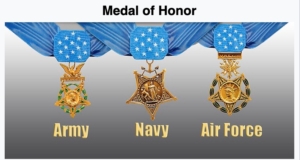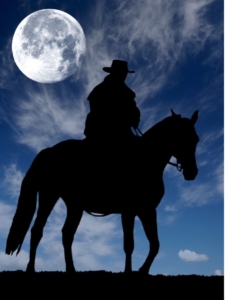What makes a hero?
I just read about a marine who disobeyed orders and moved into the line of fire to rescue his fellows. He saved several lives and received a Medal of Honor.

That’s a hero, for sure.
Just the fact that he endangered himself for others is heroic. But strangely, the “disobeyed orders” part feels like icing on the cake. We admire him even more.
Which is interesting, because if we tweak the story so that he disobeyed orders, but failed to rescue anyone or even endangered or brought harm to others, we might call him a fool. He might be court-martialed instead of honored.
Conclusion: Social approval is situational. If George Washington had failed to win the day, we would all be British colonists and calling him a traitor.
But why does disobeying orders in a “winning” scenario stir our admiration?
Because our culture preaches independence. We worship the John Wayne/Clint Eastwood cowboy, alone on the range, needing no one, the thinker/doer who doesn’t give a rat’s hinny what others think of them, the rebel who fights against the system.

Speaking generally, we in the West are prouder of our successes, more focused on personal growth, and less connected to the people around us than other cultures. (The older I get, however, the more important those connections are.)
Other cultures, especially in the Middle and Far East, don’t worship individualism the way we do. They value their entwinement and interconnections, the group over individualism.
One way is not superior to the other. Different cultures emphasize different values, but—
I wonder if Western “individualism” might be more of a thin cultural overlay. Group-think sways us more than we like to believe. In fact, we are daily witnessing group-think in the wolves’ clothing of individualism.
Many define freedom as individualism, choosing our own path, having control of our own destiny. It’s a founding reason for America’s existence.
But history has revealed it is far more complex than that. One person’s freedom is another’s prison. Since the penning of the Amendments to the Constitution, debate over the scope and meaning of “freedom” has continued.
For all our focus on behaving independently, we forget we are hard-wired to care about what others think.
Why? Because we evolved in small groups where being ostracized meant death. A person exiled from the group could not survive in the harsh world of lions, tigers, and bears.
I have to wonder if the tsunami of group-think-in-the-name-of-individualism sweeping our world got switched on because social media presented the reality (or illusion) that a large group of people think the same way. Thus, making it “safe” to move toward or to voice views that would have been anathema a decade ago.
We need our heroes because they are, in essence, stories about who we want to be and who we want our children to be.
But we might need to look closely at how we define them.

T.K. Thorne writes about what moves her, following a flight path of curiosity, reflection, and imagination.

Wisely put. I must point out you put your life in danger and did well, so you are also a hero. 🙂
Thank you, Marcia.
T.K.,
Interesting observations. I think you’re absolutely right that social media props up out-of-the-mainstream views, and that makes us seem more fractured. We’ve always been a nation with strong undercurrents against prevailing popular opinions (e.g., abolition, evangelicalism, anti-government resentments, racial attitudes, etc.), and each of those rip tides required some group-think to keep them alive. But the tsunami of information that threatens to overwhelm us today sweeps a whole lot of people without critical thinking skills along for the ride.